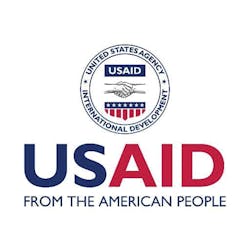USAID, Texas A&M Invest $5 Million To Combat Coffee Rust Crisis
WASHINGTON, D.C. – The U.S. Agency for International Development (USAID) today announced a $5 million partnership with Texas A&M University’s World Coffee Research to eliminate coffee rust, a plant disease that has caused more than $1 billion in economic damage across Latin America and the Caribbean since 2012 and seriously threatens the livelihoods and food security of those who make their living in the coffee industry, especially small farmers.
The partnership will support research on rust-resistant coffee varieties, address the shortage of disease-resistant coffee seedlings, and expand the capability of the region’s coffee institutions to monitor and respond to coffee rust. Central America’s smallholder farmers grow the bulk of the region’s specialty coffee, a lucrative commodity that is in increasingly high demand in the United States and around the world. With USAID’s investment, research will focus on establishing a more resilient and higher quality regional coffee sector.
“Coffee rust threatens more than your morning coffee—it affects jobs, businesses, and the security of millions across the Americas,” said USAID’s Associate Administrator Mark Feierstein. “We must tackle this outbreak to ensure farmers and laborers have stable incomes, don't start growing illicit crops, or be forced to migrate because they can no longer support their families. This partnership will tap innovative solutions to address the immediate and long-term impacts of coffee rust and help this key agriculture sector rebound.”
The current coffee rust outbreak is the worst in Latin America’s history. Reasons for current outbreak are varied, but USAID plant experts say that climate change is exacerbating the crisis. It is estimated that production will fall by as much as 15-40% in the coming years, which could trigger job losses exceeding 500,000. Decreased production may lead to decreases in incomes for smallholder farmers, making it harder to afford the fungicides and plant maintenance necessary to control the disease. The negative impacts of coffee rust go beyond the farmers and businesses that support the industry—seasonal laborers and their families are losing an import source of income.
Feed the Future, the U.S Government’s global hunger and food security initiative, is working closely with Latin American and Caribbean governments, international and regional organizations, civil society, coffee associations and the private sector to mitigate the crisis, accelerate the recovery, and enable future growth. Earlier today, USAID Administrator Rajiv Shah announced that Feed the Future initiative has reached 7 million small farmers and saved 12.5 million children from the threats of hunger, poverty and malnutrition. Feed the Future and complementary efforts have created thousands of news jobs, attracted billions of dollars in investments focused in agriculture, disbursed affordable new technologies aimed at managing the risks of a changing climate, and brought nutrient-packed foods to the mouths of millions of mothers and children around the world.
Overall, USAID is investing $14 million in the fight against coffee rust. In addition to the World Coffee Research partnership, the United States is:
- Providing a regional emergency coffee coordinator to assist with regional coordination and disseminate best practices to combat rust.
- Helping to develop a coffee pest early warning system to help predict and mitigate future outbreaks.
- Working with regional and global partners to identify and disseminate the most effective mitigation strategies.
- Collaborating with international financial institutions and coffee companies to develop new financing opportunities for replanting coffee trees with improved coffee varieties.
The U.S. Agency for International Development is leading the U.S. Government's efforts to end extreme poverty and promote resilient, democratic societies.
Feed the Future is the U.S. Government’s global hunger and food security initiative. With a focus on smallholder farmers, particularly women, Feed the Future supports partner countries in developing their agriculture sectors to spur economic growth and trade that increase incomes and reduce hunger, poverty and undernutrition. More information: www.feedthefuture.gov.
World Coffee Research is a non-profit, collaborative research and development program of the global coffee industry to grow, protect, and enhance supplies of quality coffee while improving the livelihoods of the families who produce it. More information: worldcoffeeresearch.org.
